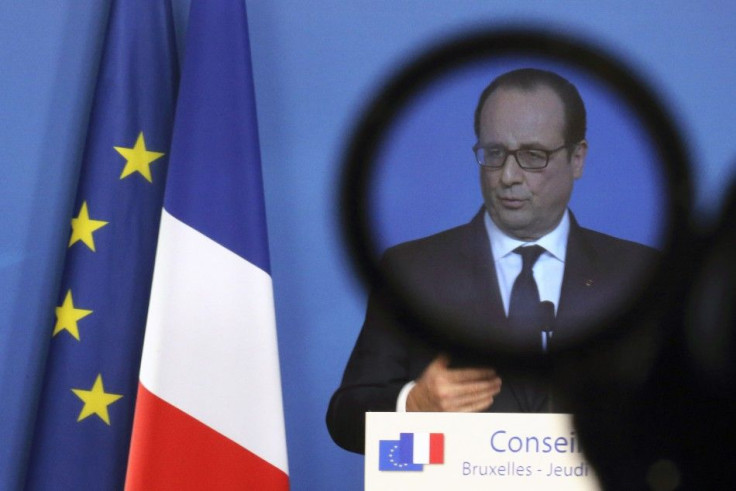Terror attacks threatening investment in Europe, says Siemens chief

Recent terror attacks in Paris have stoked concerns of investor exodus and accentuated fears about the reluctance of major companies to invest in Europe. The aftermath of the terrorist attacks has put Europe’s viability as an investment destination into focus. Siemen’s chief executive was the latest to set the alarm bells ringing.
“Investment is about believing, about the future, and when events like that happen, people will wait,” Joe Kaeser told the Financial Times.
“My biggest business concern is the fallout of the geopolitical distress. We’ve seen a new quality with the sad events in Paris,” Kaeser said.
As the biggest industrial conglomerate in Europe with 350,000 employees, Siemens' statement carries weight. In early November, Siemens had forecast moderate revenue growth despite “continuing complexity in the geopolitical environment” in the 2016 financial year. For eurozone, official figures suggest economic growth was slow and the recorded growth for the three months to September was 0.3 percent, which was lower than expected.
Siemen’s net profit fell almost euro 500 million (AU$740 million) to euro one billion (AU$1.48 billion) for the 2015 financial year, said a BBC report.
Investor confidence hit
The chief’s sentiments were also echoed by Italy's finance minister Pier Carlo Padoan, who said the Nov. 13 Paris terror attacks have threatened the fragile economic recovery of euro zone.
“The biggest economic damage from these attacks is on confidence and confidence is a crucial element in this phase,” Padoan told the FT.
“It is indispensable to help countries exit the crisis. Any elements that undermine confidence are very dangerous,” the Italian minister added.
Although eurozone economic sentiment rose slightly to 105.9 in October vis a vis September, the impact of terrorist attacks in Paris and the looming terror threat to Brussels may hurt the November figures, which will be released by the European Commission shortly.
Profound implications
The FT report notes that the business sector reaction to the Paris attacks looked muted in the beginning. Head of Europe at Eurasia Group Mujtaba Rahman noted that increased terrorist risk to Europe would certainly damage investor and consumer confidence.
“Paris and its aftermath make clear that geopolitics, not economics, will be the deterministic driver of business risk in 2016,” he said.
“Although investors have a history of shrugging off geopolitical risk, their ability to do so this time around will be harder,” Rahman added. That view was also backed by another analyst.
“The Paris attacks may well have profound implications for geopolitics and government policies, which will impact on many businesses,” said Gregor Irwin, chief economist at London-based Global Counsel that advises companies on matters of political risk, the FT report added.
Meanwhile, the finance ministers of Eurozone will be holding an extraordinary meeting in Brussels on Nov. 23. They are expected to take stock of the national budgets and assess the impact of the refugee crisis on public finances and hold a review of the Greek bail put payments, reports BBC.
For feedback/comments, contact the writer at feedback@ibtimes.com.au or let us know what you think below.






